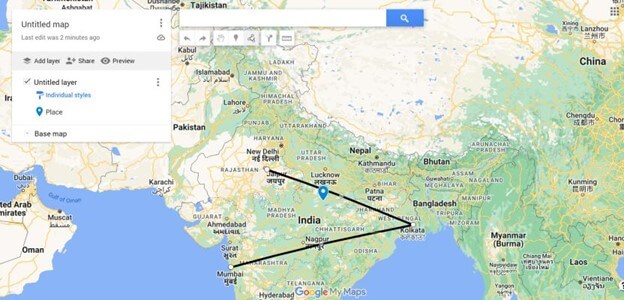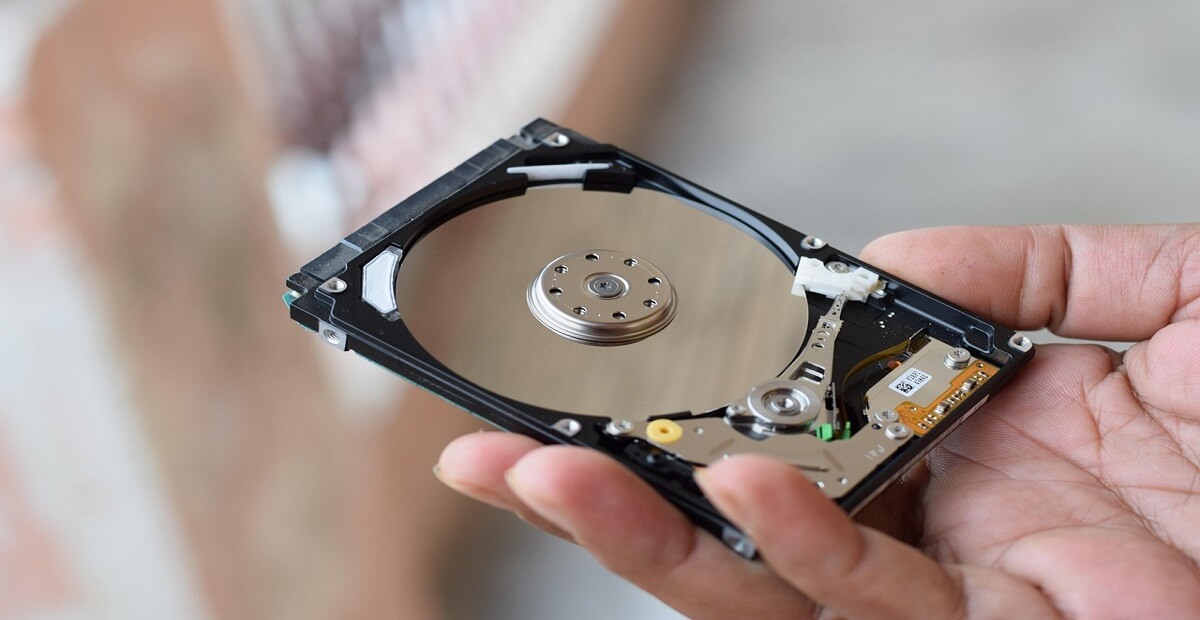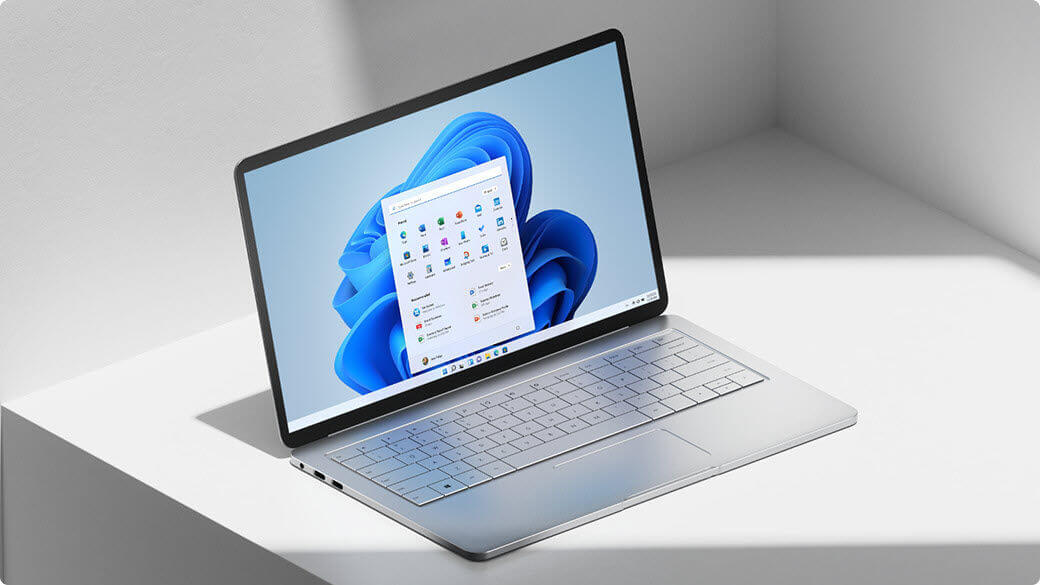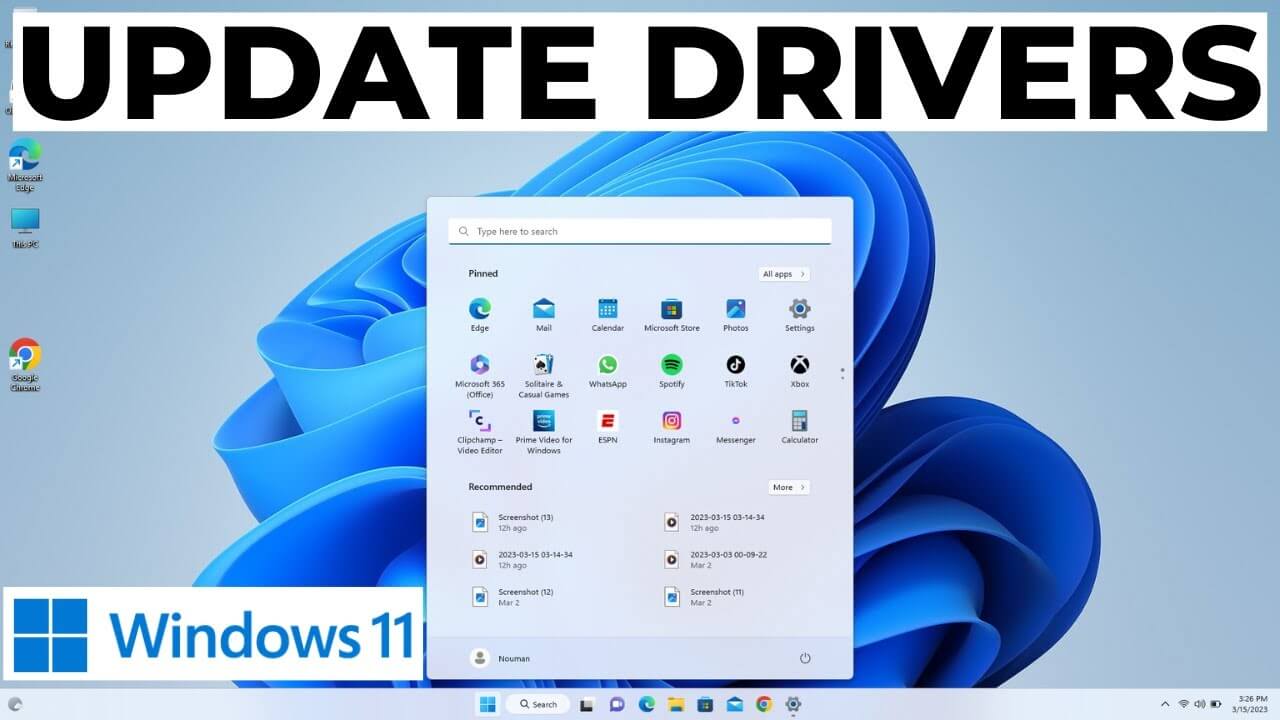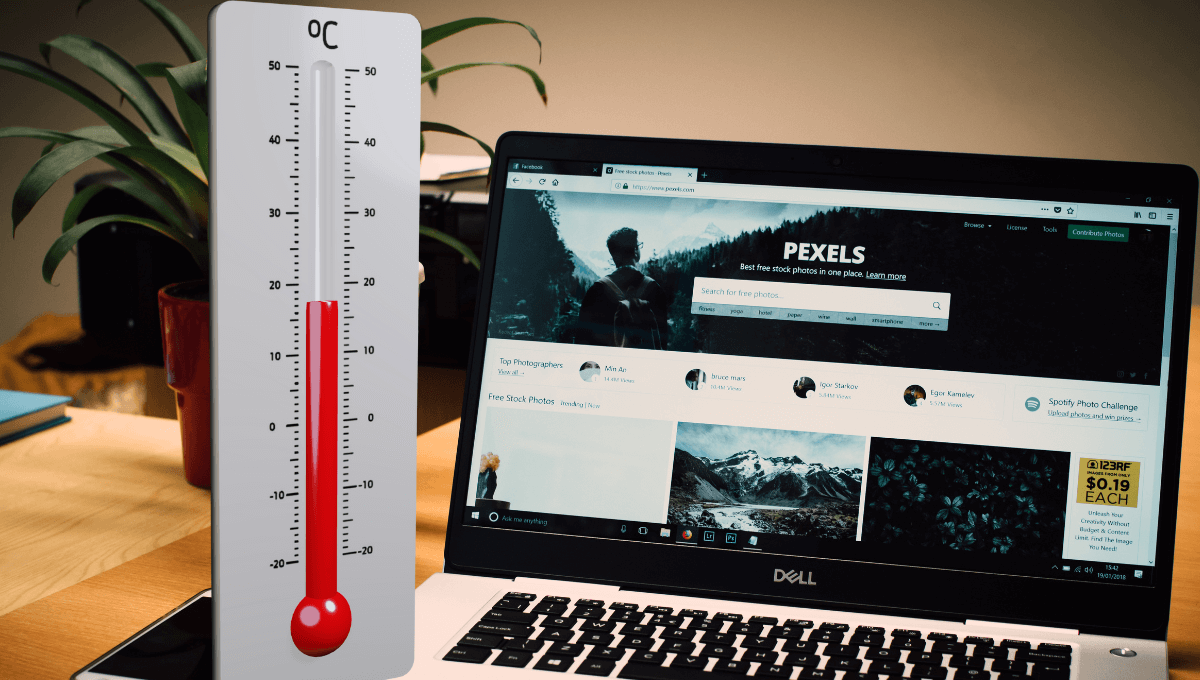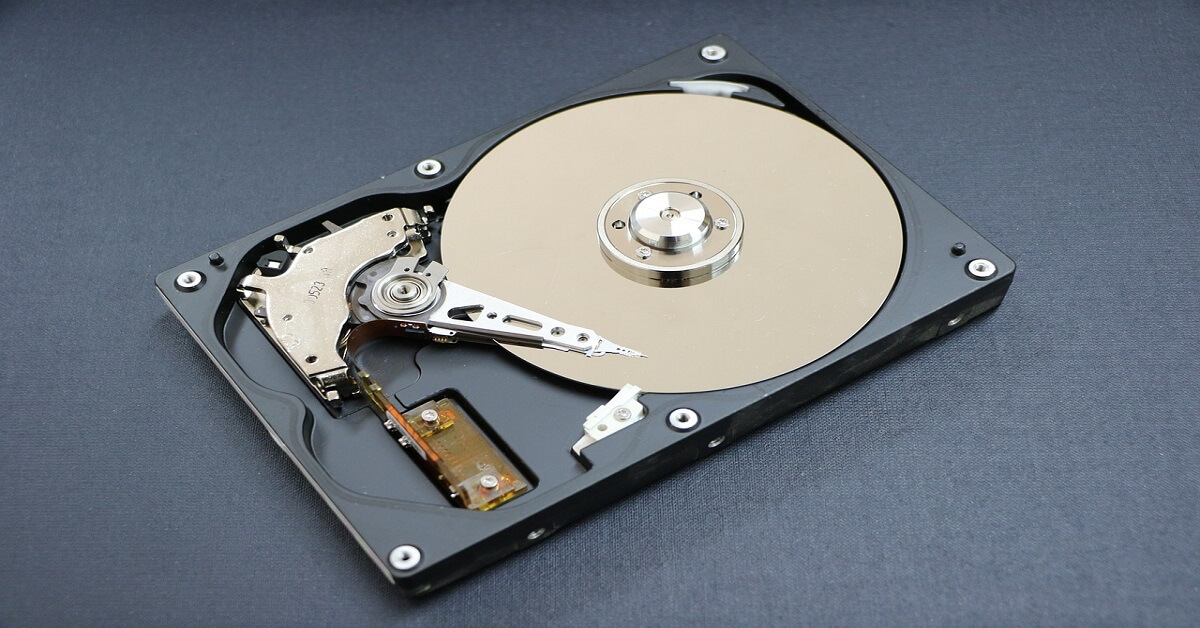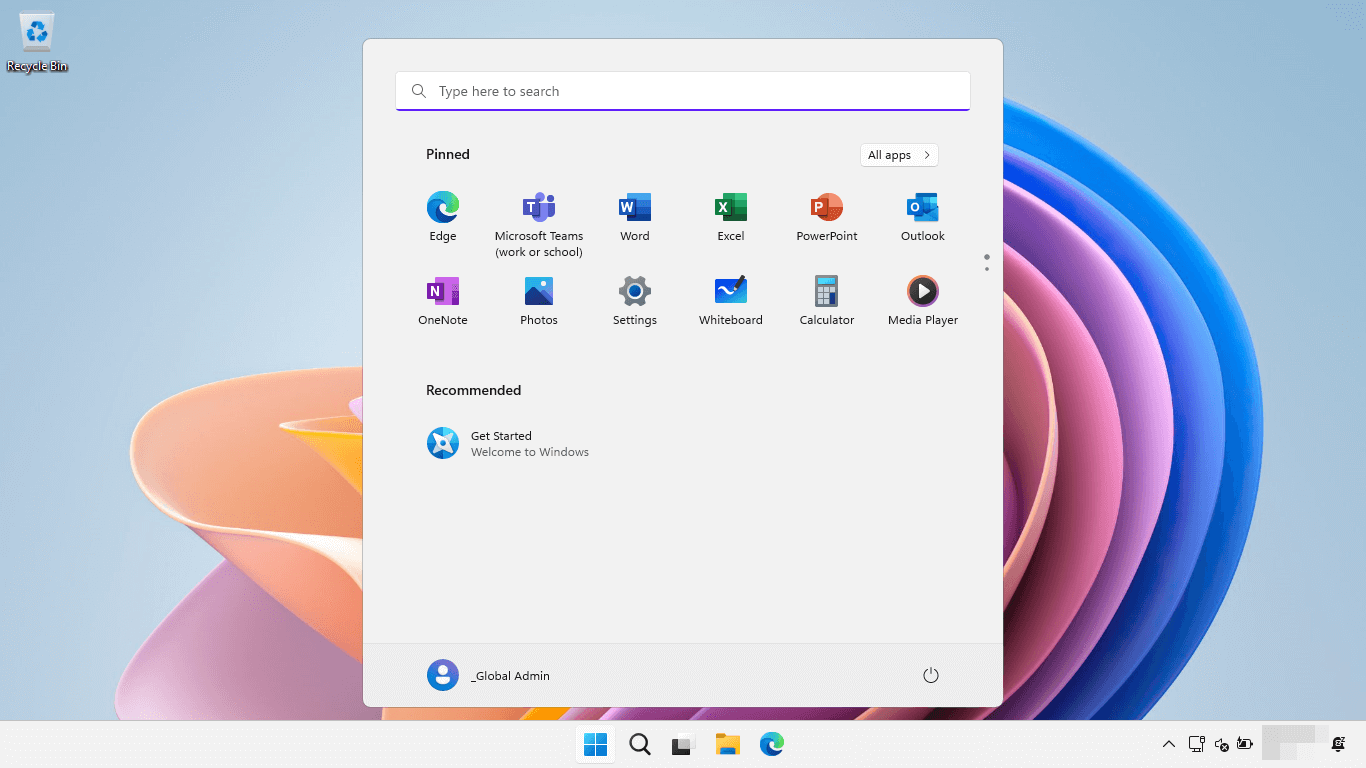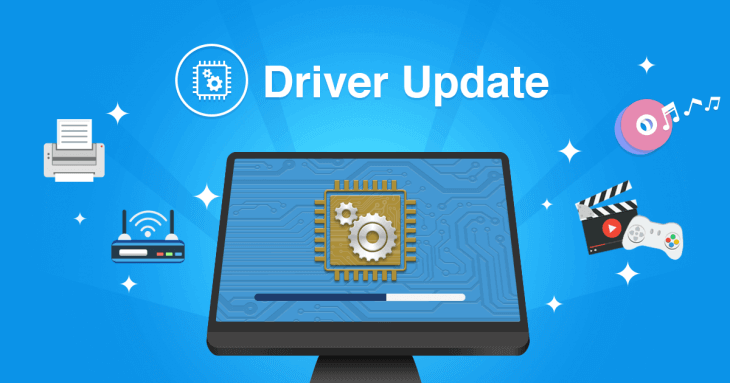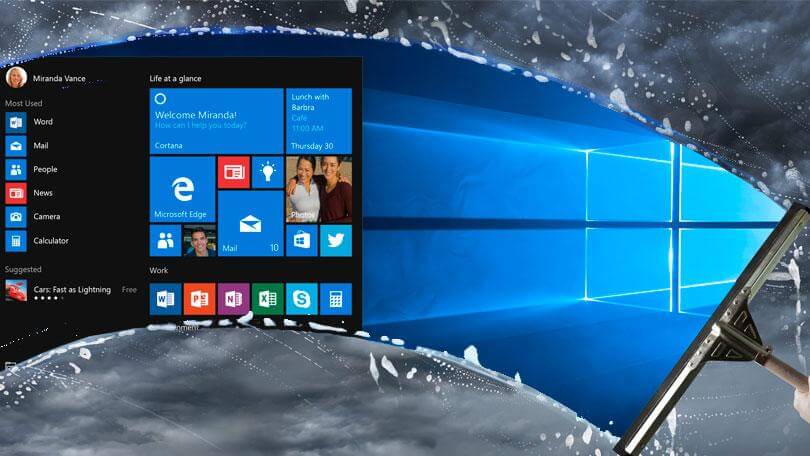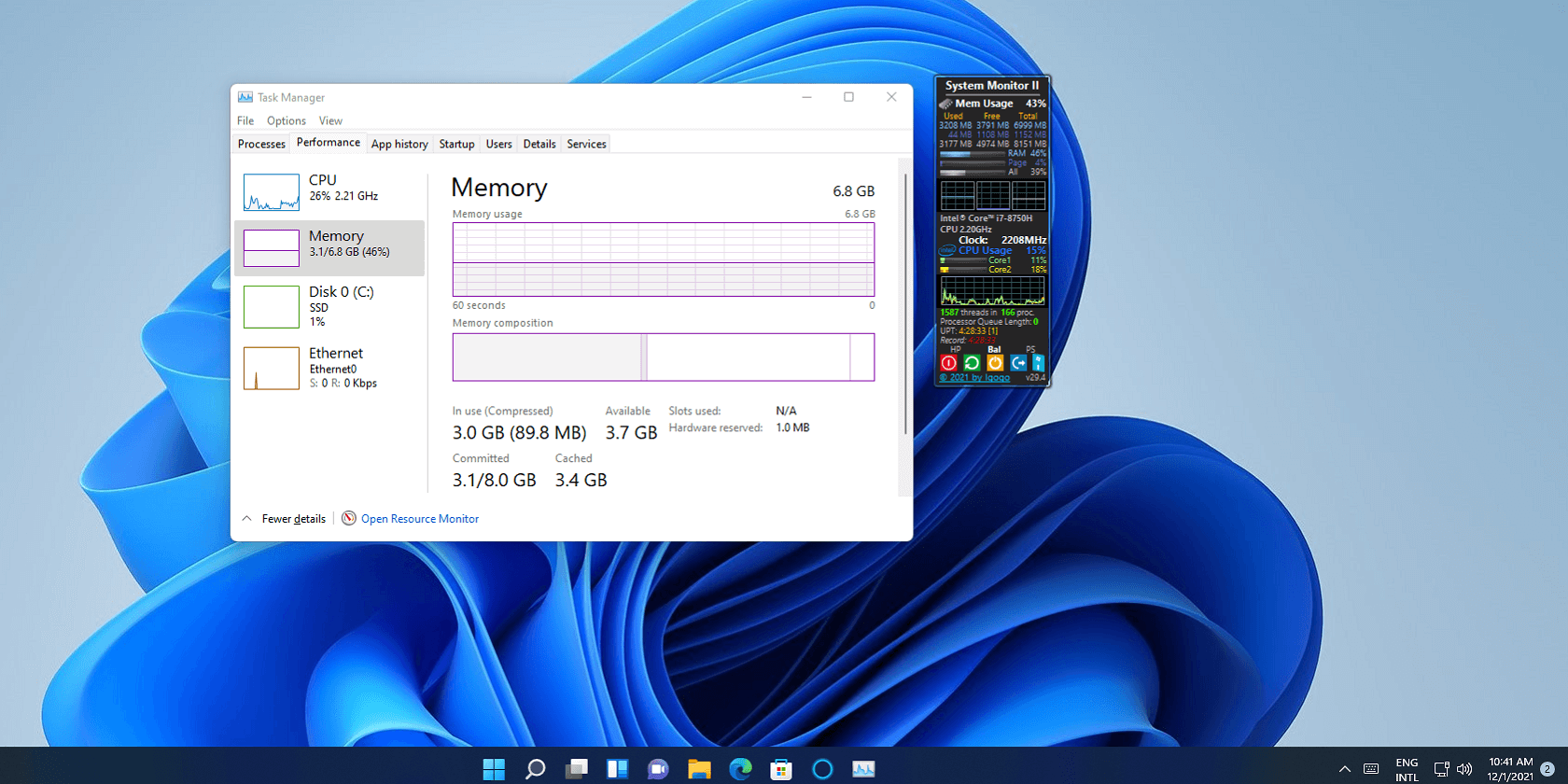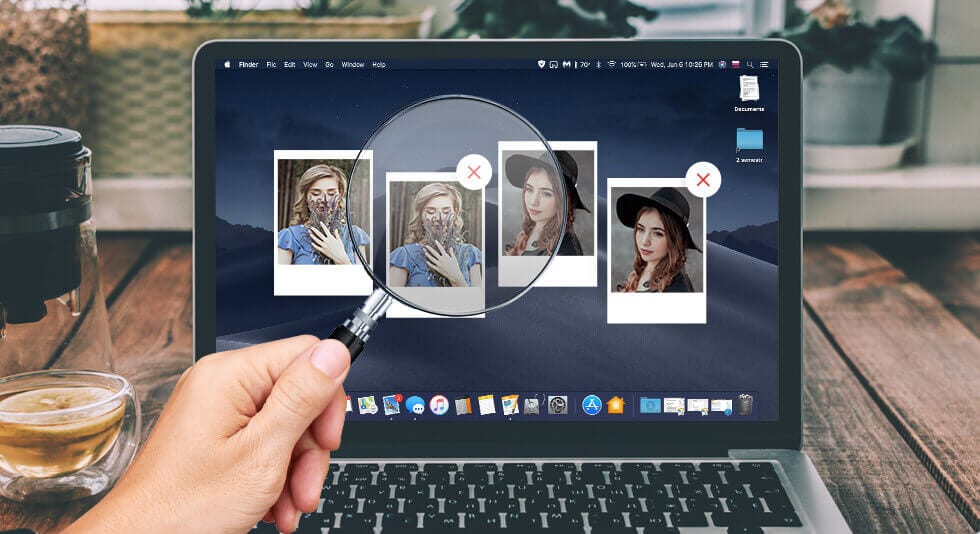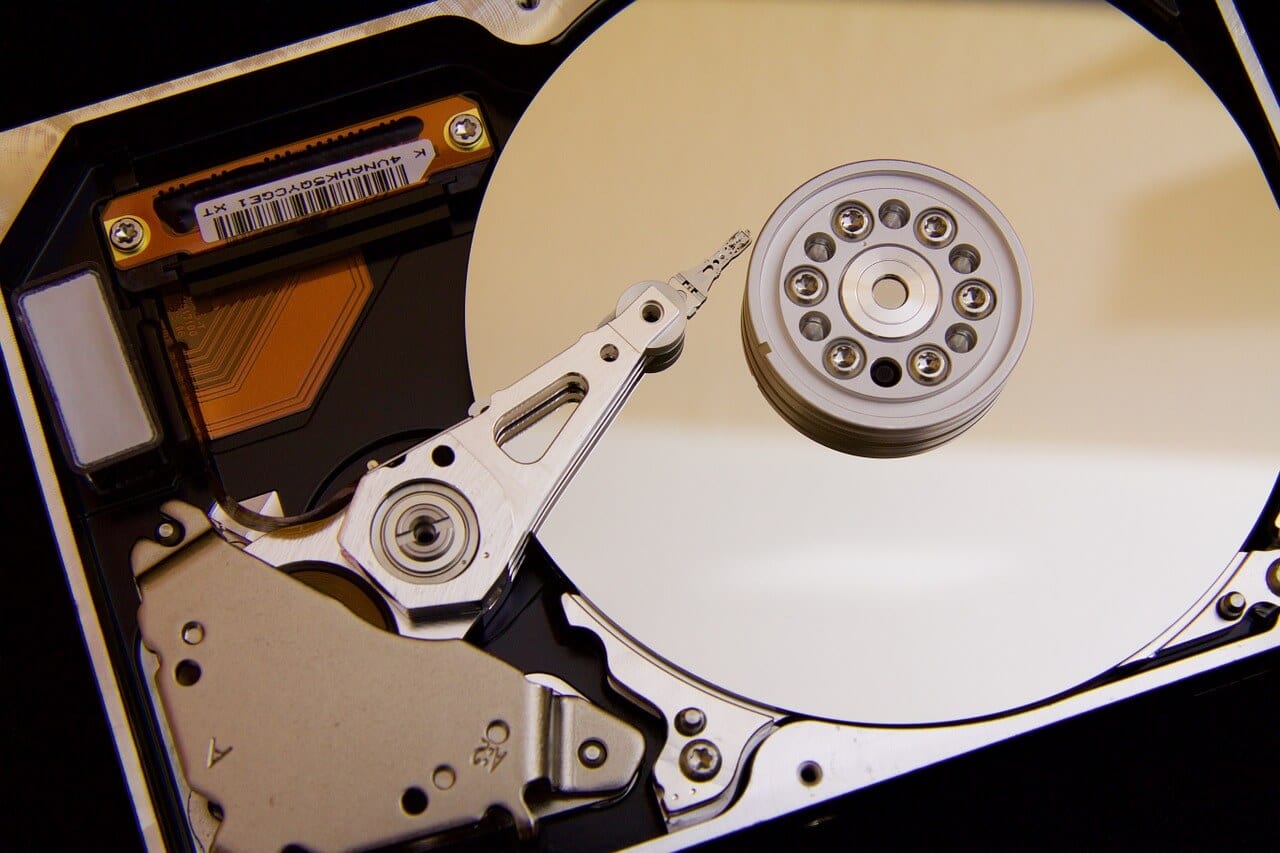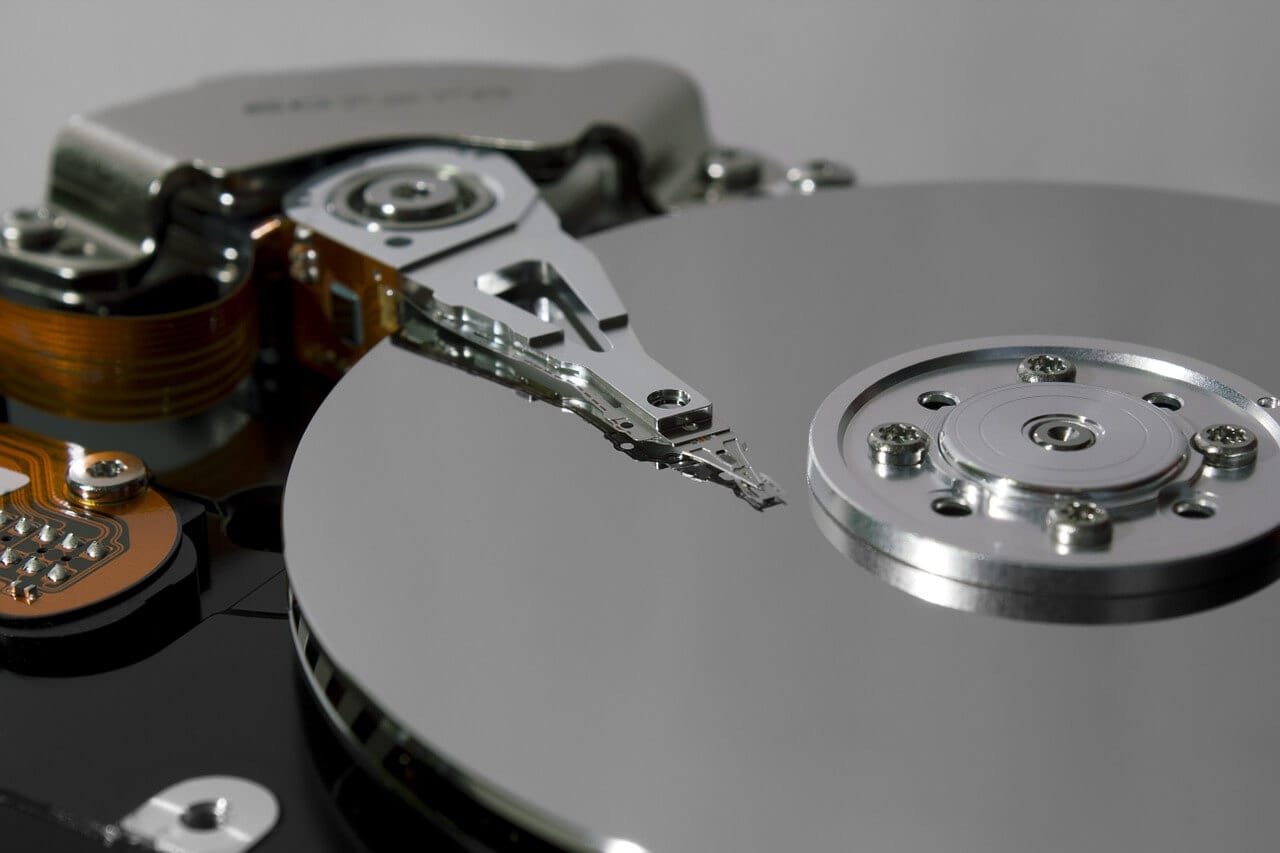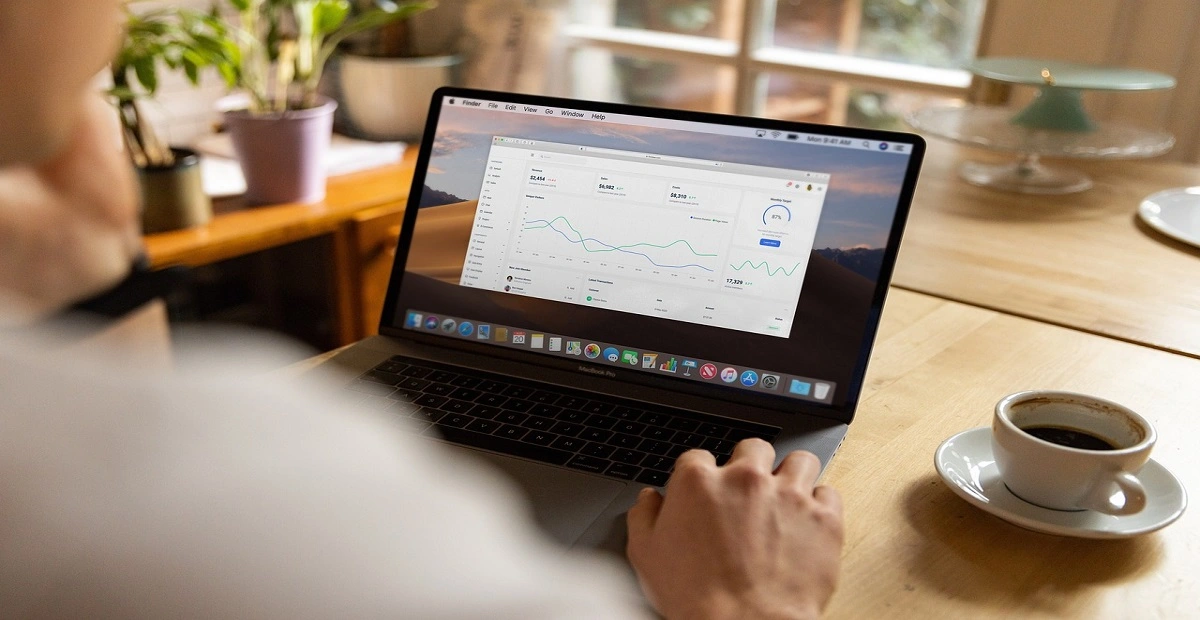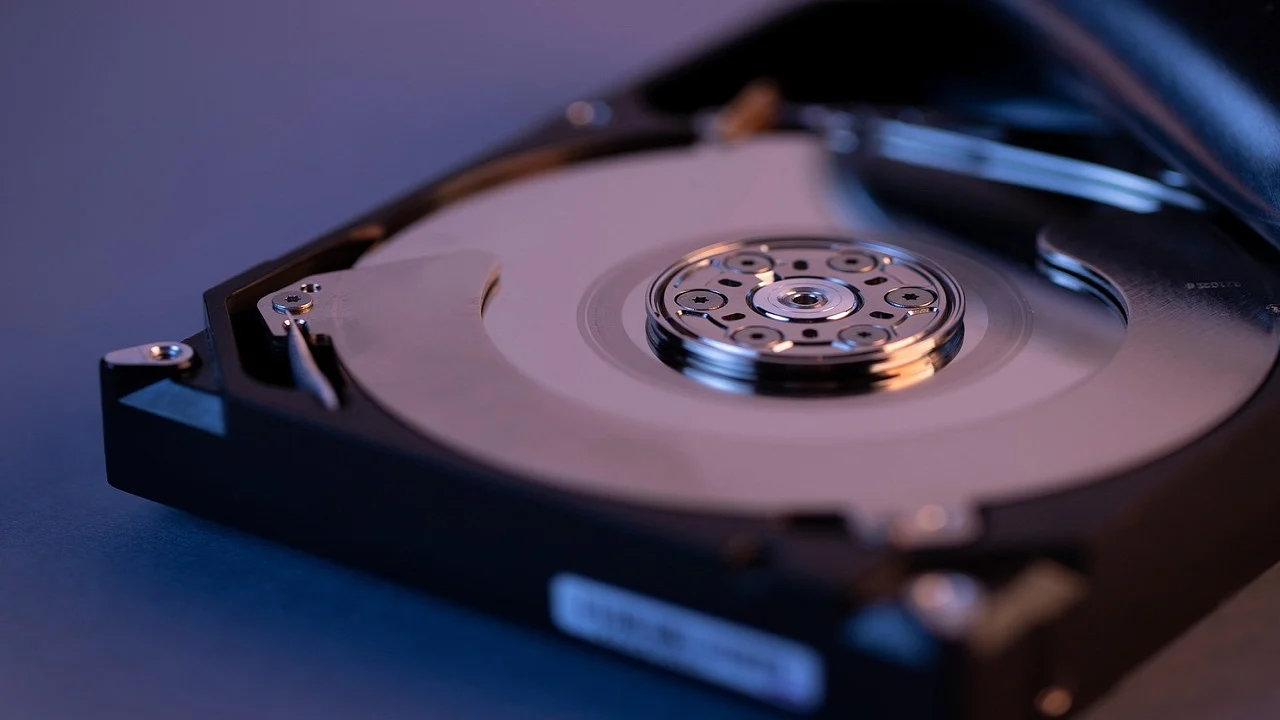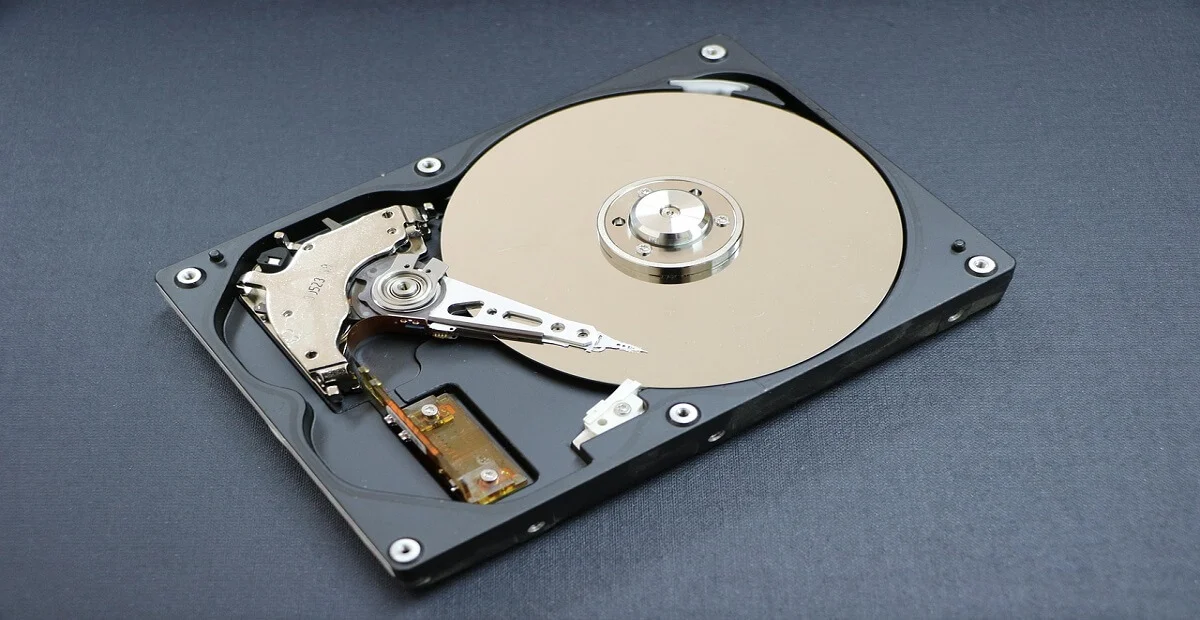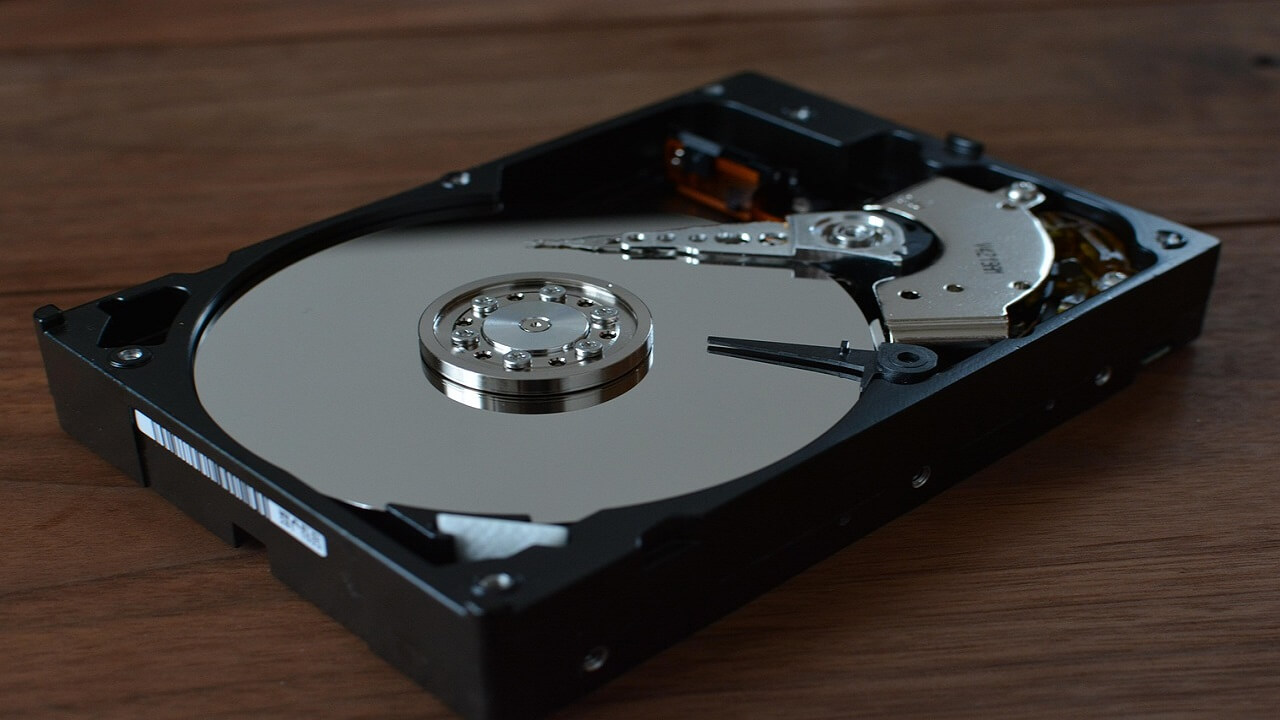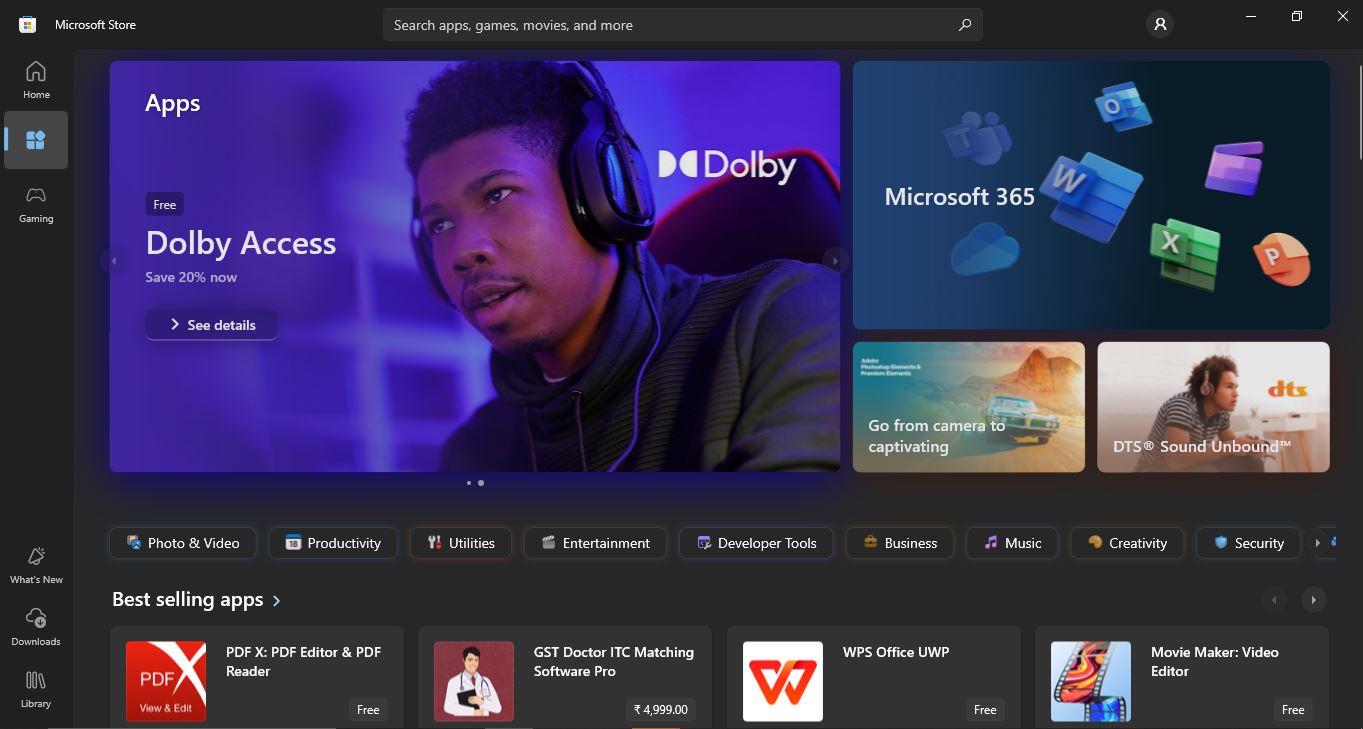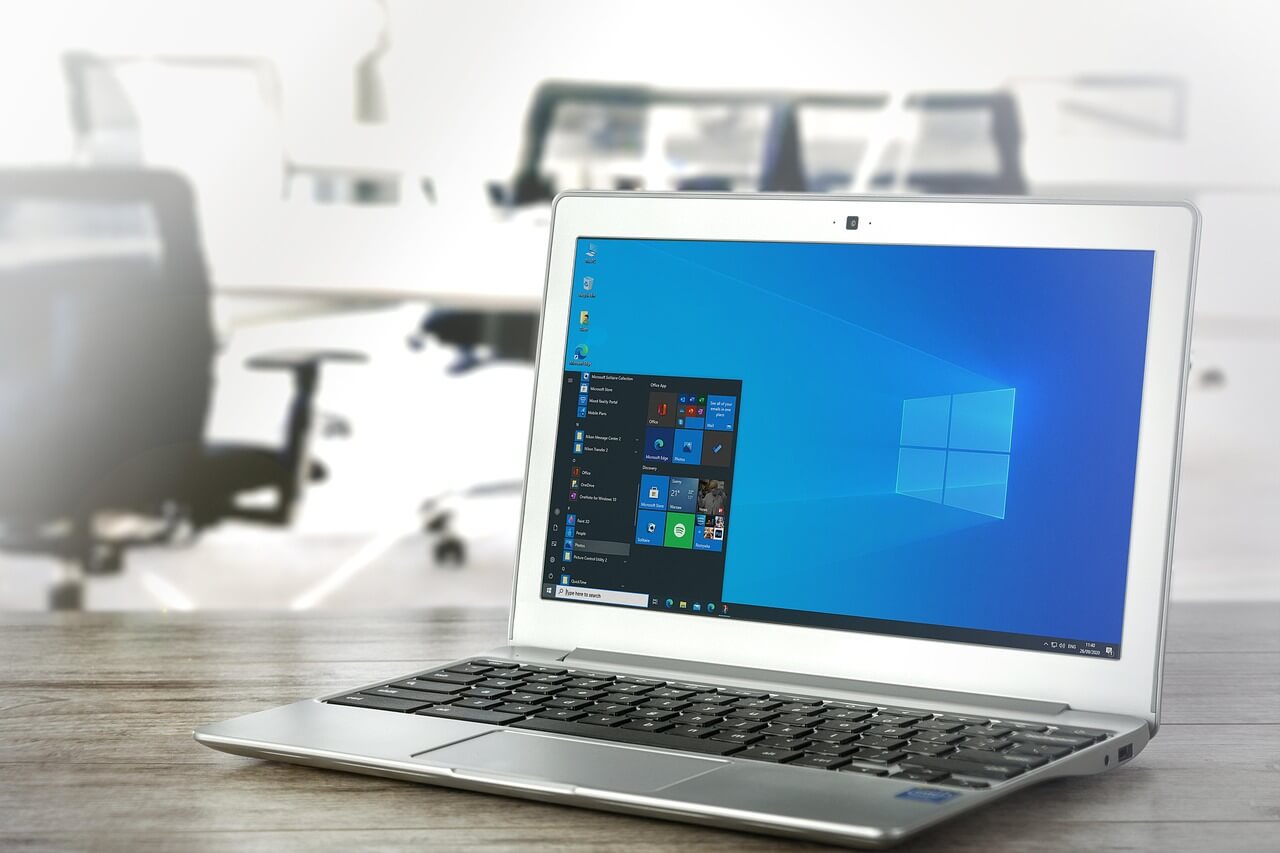How to Create a Custom Map in Google Maps
Introduction
You may create Google custom maps that do not appear on anyone’s page by going to maps.google.com and using one of the many available choices. You do not need specialized software to make a unique map for you or someone else. All you require is Google Maps, which enables you to create a personalized map with your instructions, shapes, and pins.
You will need a Google Maps account on your desktop computer to achieve this. You must also erase your site information if Google Maps gives you an empty screen.
How to Customize a Map in Google Maps
You can only construct the Earth’s surface using a customized Google my maps. But you may add your places of interest, routes, and sites if you want to.
To add even more complexity to the current map, you may draw your personalized forms onto it. A custom map can only be made using the desktop internet-based version of Google Maps, even if you can see one via the Google my maps mobile application for Android and iOS.
Step 1: Visit the Google Maps webpage and my maps login with your Google account. Click the Put symbol in the top-left corner once you have logged in.
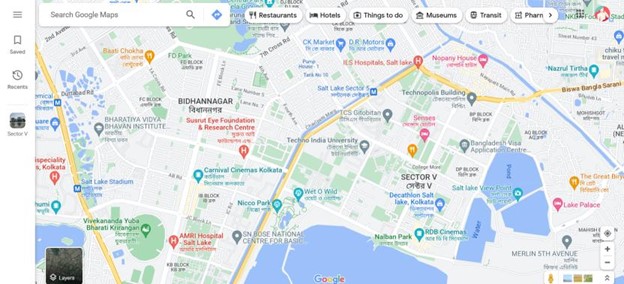
Step 2: Select “Saved” from the options menu.
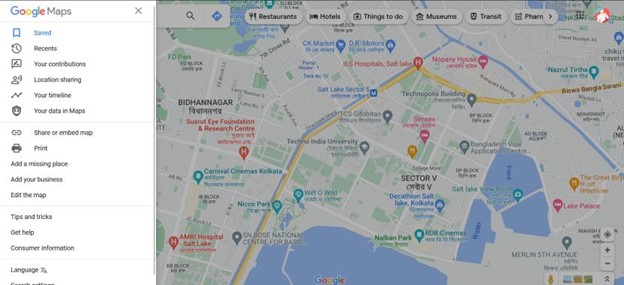
Step 3: Select the “Maps” tab from the “Your Places” option on the left. Choose the “Create Map” option from the menu’s bottom.
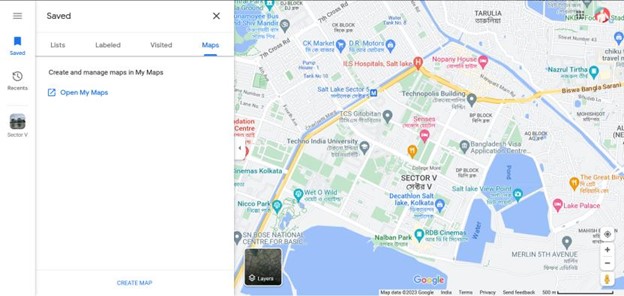
Step 4: A new browser tab will open with the map creation window. Select the “Untitled map” phrase at the top of the list of options on the left to give it a name.
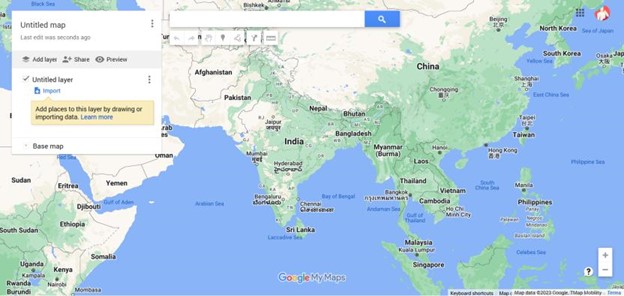
Step 5: Give your map an acronym and a brief description in the “Edit map title and descriptions” option, then click “Save” to store it.
Customized Map Layers
The “Base Map” layer, which is the default Google custom maps viewpoint, is the lowest layer of your customized map.
Step 1: Click the options icon next to “Base Map” and pick a new map theme to change the “Base Map” layer’s design.
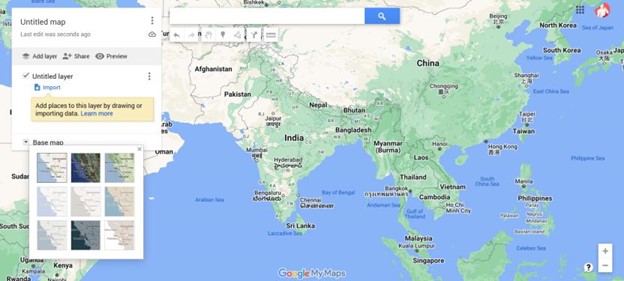
Step 2: By standard, an “Untitled Layer” is included when you build a new customized map in Google Maps.
Step 3: Choose the “Add layer” option to add as many different layers as you would like to your map, allowing you to distinguish between its many elements.
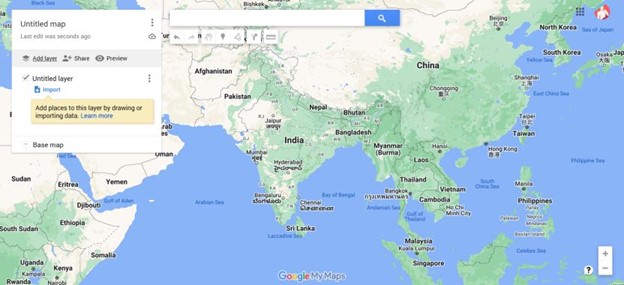
Step 4: To change the name of this layer, click “Rename Layer” in the drop-down selection after choosing the three-headed icon next to it.
Step 5: Choose “Delete Layer” in its place to remove it.
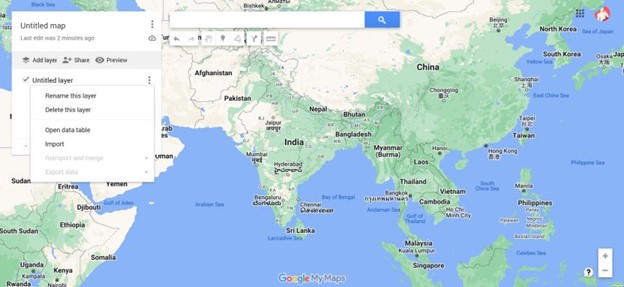
Google Maps: Adding Features to a Customized Map
Google Maps allows you to add various elements to a custom map. You may draw directions, marker stages, shapes, and lines straight into the map.
Start by visiting the Google Maps webpage and choosing the hamburger-style menu > Your Location > Maps > Create a map free to ensure you are in the customized map editor.
Combining a Marker Point
A pinpoint on the map is referred to as a custom marker point. This can give an area extra explanations and direct map viewers to a place or region not included in the “Base Map” layer.
Step 1: Ensure you have selected a suitable location on the “Base Map” layer before adding a marker point on the map itself. When ready, choose “Add Marker” from the menu below the search field in the customized map editor.
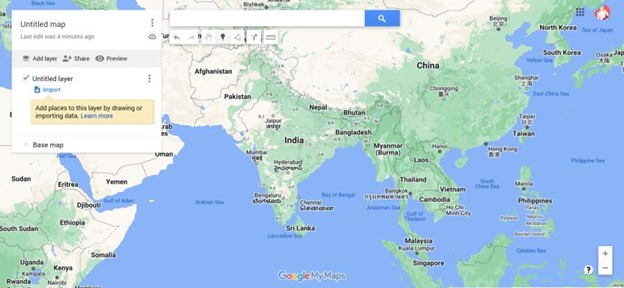
Step 2: Select a map region with your mouse or trackpad. This will open the marker editor; provide an appropriate designation and description before choosing “Save” to add it to the map you have created.
Incorporating Lines or Shapes
You may add unique contours and lines to your map to highlight particular places.
Step 1: To begin, choose “Add a line or shape” from the menu below the search bar after clicking the “Draw a Line” option.
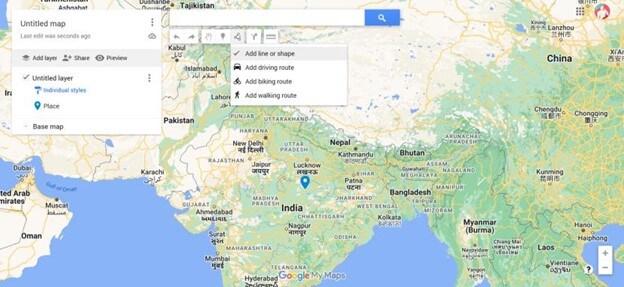
Step 2: Using your computer’s mouse or trackpad to draw a line at a suitable location on the map, connect many lines to form a joined-up shape. Entering characters submits lines.
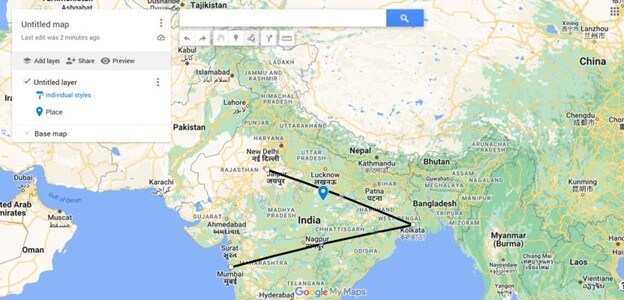
Step 3: In the pop-up menu, give your choice a unique name and explanation before clicking “Save” to finish.
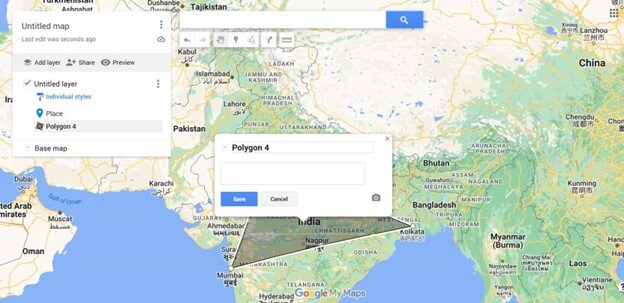
Making Customized Directions
Adding a directions layer to a custom map lets you easily publish directions from point A to point B.
Step 1: Select “Add Directions” from the menu below the search box to build this layer.
Step 2: The menu on the left will now show the instructions layer. Fill in the “A” text box with your place of departure point and the “B” text box with the destination point.
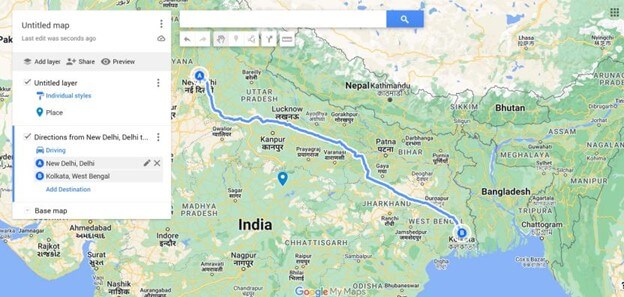
Step 3: The map will be modified to reflect the path between your designated places after both the “A” and “B” boxes have been filled in.
Share Google Maps Custom Map
Once you have made your map, you can view it anytime from either the Google Custom Maps webpage or the hamburger menu under Saved > Maps in Google My Maps.
Your personalized map is initially just visible to you, but you can share it. Navigate to the Google Custom Maps internet site, log in, and then choose the “Owned” page to get your personalized map.
Step 1: Select the “Share Map” option to distribute it to others. This will allow you to email, embed, or share your personalized map across multiple social media networks.
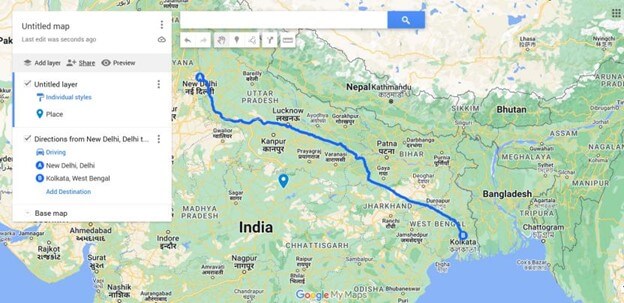
You may also get an individual hyperlink to your map, letting you send it straight to others.
Step 2: Choose the map you created to get back to the map designer on the Google Custom Maps website’s “Owned” tab, and finally, click the “Share” option in the menu on the left side.
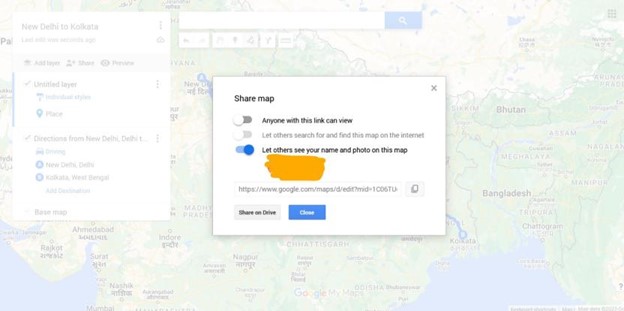
This will open the “Share Map” menu of choices. If you would like, you may make your map accessible online and open it for anybody with the URL to view.
It is incredible to have the ability to use Google My Maps’ capability for your unique maps. It is one of Google Maps’ fewer-popular options besides “Local Guides.” Remember that this cannot be the same as pointing out missing landmarks or routes on a public map.
Conclusion
It is simpler than you would think to make your personalized map. Utilizing the Google Custom Maps webpage or mobile app is the most widely used technique for producing custom maps, and this is where most users begin. This often works well for specific activities like creating a route or outlining a few places.
However, consider looking at greater-level mapping services if you want to carry out any more significant customizing, such as locating hundreds or thousands of sites at once or wishing to design more complicated routes.
Popular Post
Recent Post
Supercharge Your Productivity: A Solopreneur’s and SMB’s Guide to Mastering Google Workspace with Gemini’
Picture this. It’s Monday morning. You open your laptop. Email notifications flood your screen. Your to-do list has 47 items. Three clients need proposals by Friday. Your spreadsheet crashed yesterday. The presentation for tomorrow’s meeting is half-finished. Sound familiar? Most small business owners live this reality. They jump between apps. They lose files. They spend […]
9 Quick Tips: How To Optimize Computer Performance
Learn how to optimize computer performance with simple steps. Clean hard drives, remove unused programs, and boost speed. No technical skills needed. Start today!
How To Speed Up My Computer/Laptop Windows 11/10 [2025]
Want to make your computer faster? A slow computer can be really annoying. It takes up your time and makes work more difficult. But with a few easy steps, you can improve your laptop’s speed and make things run more smoothly. Your computer slows down over time. Old files pile up. Programs start with Windows. […]
How To Fix Low Disk Space Error Due To A Full Temp Folder
A low disk space error due to a full temp folder is a common problem. Many users face this issue daily. Your computer stores temporary files in special folders. These files ensure optimal program performance, but they can accumulate as time goes on. When temp folders get full, your system slows down. You might see […]
How to Use Disk Cleanup on This Computer: Step-by-Step Guide
Computers getting slow is just the worst, right? Well, yes! Files pile up on your hard drive. Luckily, the Disk Cleanup tool on your PC is here to save the day. It clears out unnecessary files, giving your system the boost it needs to run smoothly again. A lot of users aren’t aware of the […]
Top 25 Computer Maintenance Tips: Complete Guide [2025]
Computer maintenance tips are vital for every PC user. Without proper PC maintenance, your system will slow down. Files can get lost. Programs may crash often. These computer maintenance tips will help you avoid these problems. Good PC maintenance keeps your computer running fast. It makes your hardware last longer. Regular computer maintenance tips can […]
Reclaiming Disk Space On Windows Without Losing Files: A Complete Guide
Running low on storage can slow down programs and trigger that annoying “low disk space” warning. Files accumulate over time, cluttering the drive. The good news? It’s possible to reclaim space without deleting anything important. Reclaiming disk space on Windows without losing files is easier than you think. Your computer stores many temporary files, old […]
Fix Issues Downloading From the Microsoft Store on Windows 11, 10 PC
Do you get excited when you’re about to download a new app or game? You open the Microsoft Store, click the download button… but nothing happens. Or maybe it starts and then suddenly stops. Sometimes, strange messages pop up like “Something happened on our end” or “Try again later.” That can be really annoying. But […]
Fix Low Disk Space Errors Quickly On Windows 11, 10 PC [2025]
Low disk space errors can slow down your Windows PC. These errors appear when your hard drive runs out of room. Your computer needs space to work properly. When space runs low, programs crash and files won’t save. Windows shows warning messages about low disk space. Your PC may freeze or run slowly. You might […]
How To Uninstall Software From My Computer: Complete Guide [2025]
Learning how to uninstall software from my computer is a key skill. Every PC user needs to know this. Old programs take up space. They slow down your system. Unused software creates clutter. When you remove a program from computer, you free up storage. Your PC runs faster. You also fix issues caused by bad […]

